All images courtesy of Freeman Promotions
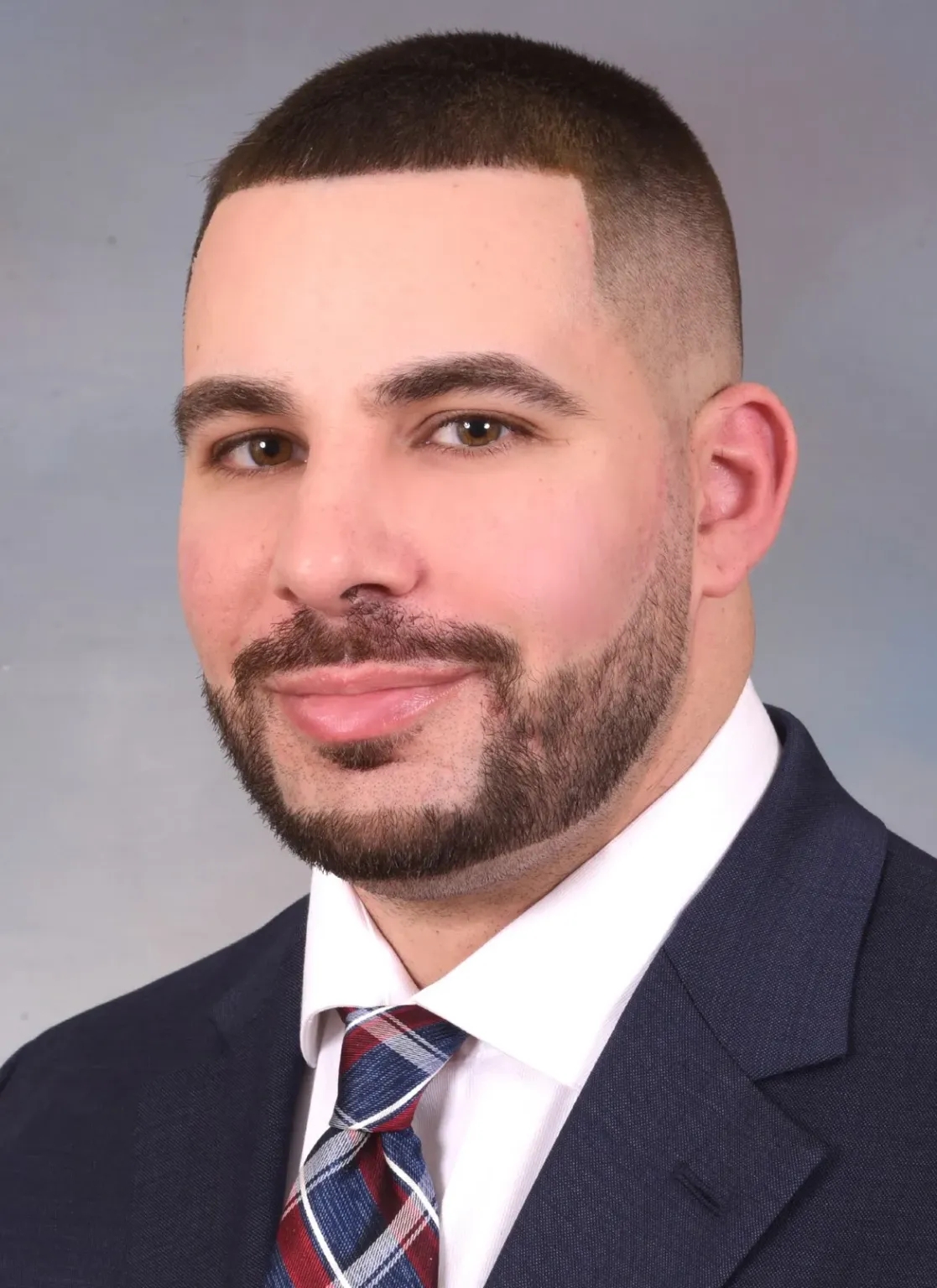
By Andrew DiCecco
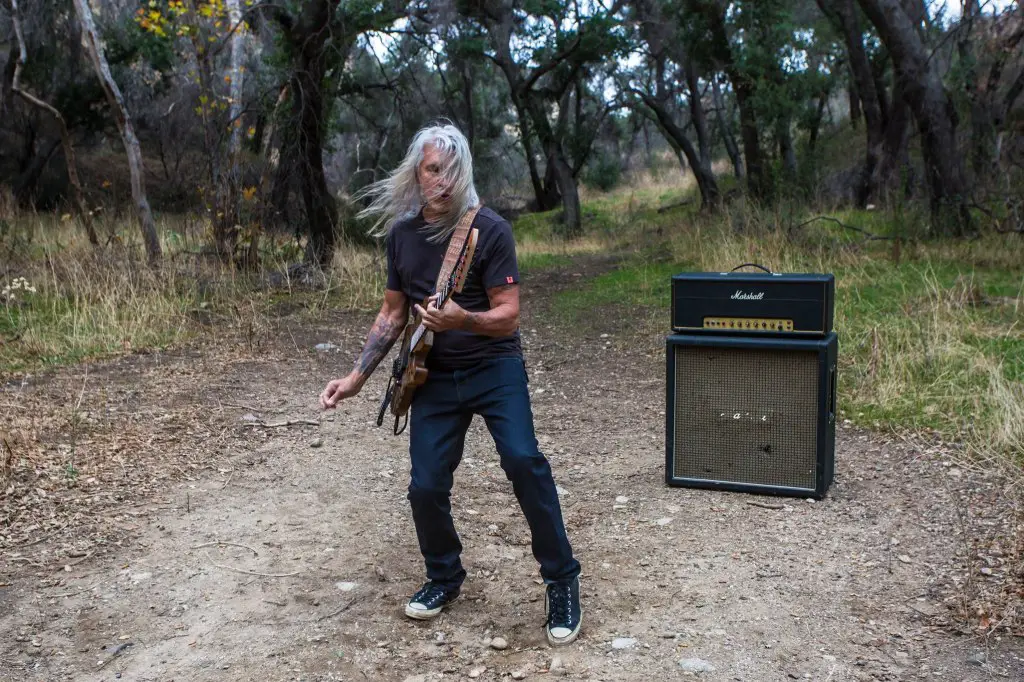
For George Lynch, the fire ignited over four decades ago still burns deep within.
The heralded axman, who proved to be the driving force behind his latest venture, The End Machine: Phase2, shows no signs of slowing down anytime soon.
Fueled by Lynch’s fiery riffs and the thunderous drum fills of newcomer “Mild” Steve Brown, the band’s follow-up effort captures an unmistakable energy and sound that resembles a hard-hitting throwback to the 1980s.
Phase2, released on April 9th, reunites the original Dokken tandem of Lynch and Jeff Pilson (bass/producer), veteran vocalist Robert Mason, and the ever-vibrant Steve Brown — who replaces his older brother, “Wild” Mick Brown behind the drum kit.
I recently sat down with George to discuss, among other things, the concept behind The End Machine and the challenges of recording during a pandemic, his chemistry with Jeff Pilson, the demise of Dokken, upcoming endeavors, and more.
Andrew:
First and foremost, George, congrats on the album release. Tell us about the formation of The End Machine and your vision when you put the band together.
George:
Well, it’s really just an evolution of other projects that Jeff and I have worked together on in the past; starting with LP [Lynch/Pilson] in the early 2000s, and that led to the T&N project [Tooth and Nail] and that led to The End Machine. So, we’re really rebranding the things that Jeff and I do when we get together and write, whether it’s Dokken, or The End Machine, or anything in between; it’s kind of the same process. We’re really just evolving the concept of it over time, to the point of where it’s an actual band with consistent members from record to record and with the potential of actually touring.
Andrew:
Your history with Jeff Pilson dates back to the early 1980s. What is it about the connection that has enabled every collaboration to be successful?
George:
I’ve never analyzed it, but it’s always been successful and productive. Jeff and I have never sat down and not been able to come up with something because we think along the same lines as far as what we’re trying to achieve, and we understand each other. We’re not working cross-purposes, and Jeff just has a wonderful temperament; he’s a very patient and positive person. I like to think I am as well, to a certain extent. Our styles are similar, and we have a lot of fun during the process. We enjoy working together, we goof around a lot, and that makes the process fun and not necessarily tedious. When you’re relaxed and having a good time, it can be more productive. I find when I try to laser focus on something and over-analyze it, it can kind of bring everything to a stop; you’re not letting it flow.
Andrew:
You remain one of the more active musicians in the industry and never seem to have a shortage of ideas. Where does the inspiration come from?
George:
To me, it’s kind of like the way I look at astrophysicists. It’s like, “Okay, we could spend trillions of dollars on particle accelerators and rovers to Mars, but we can’t fix problems at home like homelessness, inequality, justice, environmental challenges, and things like that.” So, I think – and I don’t know how good of an analogy this is – but I think music is like that. There’s things that we need to know, and there’s things that I don’t think will matter if we know or not. That’s the difference between knowledge and wisdom. With music, I like to look at it as approaching it from a point of wisdom. I don’t need to know how everything works on a molecular, micro, or macro-level; all I need to know is what I need to know. And that is, that if I relax, and I get out of my own way, and I breathe and just let the ideas flow, and I plug in my guitar and I know if the sound is good — and I’m working with people that I have good chemistry with — it works. That’s all I need to know.
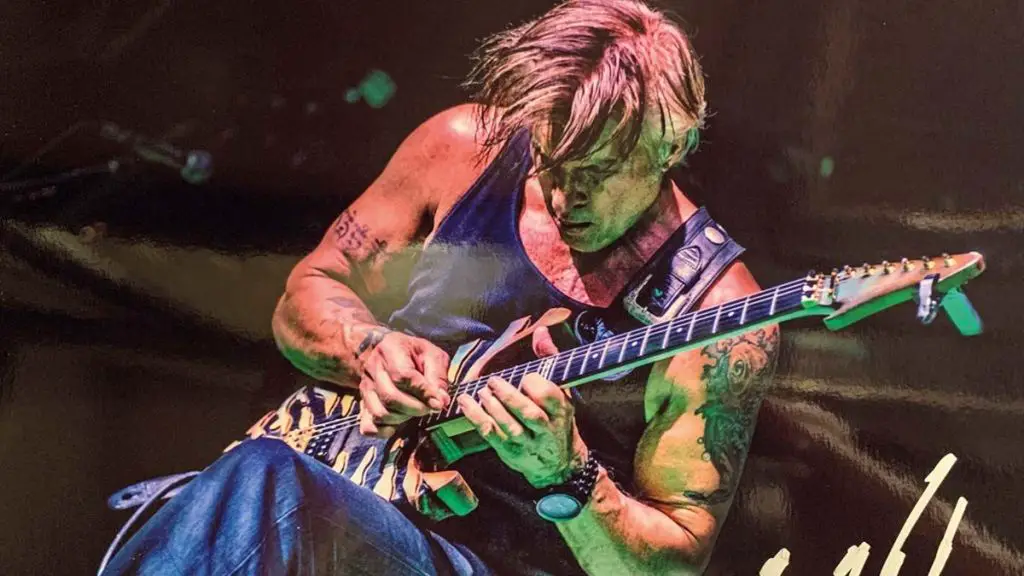
Andrew:
While you’re beloved for your guitar work, I feel that an underrated facet of your musicianship is your songwriting. Talk about your approach.
George:
My approach to songwriting is unfortunately pretty limited and sort of myopic, only because I’m coming from a guitarist standpoint and not like some of my contemporaries; most are multi-instrumentalists and songwriters and will compose on pianos, or keyboards, or guitar, or they’ll start with the vocals. I don’t work from that perspective; I come at every song from a guitarist perspective, so that limits me in many ways. I would like to unlearn those limits in some ways – it doesn’t come natural to me like guitar-writing does. I think my next challenge is trying to compose outside of my normal way of composing.
Andrew:
What were some of the challenges you encountered during the recording process?
George:
Well, the main one was we couldn’t be in a room together. But we overcame that very quickly and learned like everyone else how to work remotely and did so quite successfully. Honestly, I’ve been working a lot, all of last year and so far this year, with engineers that control my studio remotely. We communicate through Skype and use Zoom and a couple of other things. They also make sure that the monitoring is good, and we figured it out. It really wasn’t that painful. Necessity is the mother of invention. It was sink or swim; we had to figure out a way to work. It was really great because I honestly, in some ways, prefer the new method; it forces you to be a little more focused and more productive in your time because it’s kind of precious. We had to work really hard to make this work, and we had to prove that it can work. I think we subconsciously worked a little bit harder just to make sure that it’s a successful venture.
Andrew:
I recently had the pleasure of chatting with End Machine drummer Steve Brown, whom you dubbed “Mild” Steve Brown. His energy is apparent, but for those unfamiliar with Steve, tell us what added to The End Machine formula.
George:
Yeah, I mean, if you want a guy who is really good at his instrument, has a great sense of humor, and works hard, then Steve is your guy. It’s just insane, as you would expect, how similar he is to his brother in so many ways — including his demeanor, just the way his voice sounds. He’s Mick’s little brother; there’s no denying it. He’s a little bit less beat up than we all have been from the business. He’s seasoned, he’s been around, and he’s done a lot, but he’s also got a freshness to him that brings good, positive energy to the project. So, he was invaluable and a perfect replacement for his brother. And he isn’t really mild; it just rhymed with wild. [Laughs].
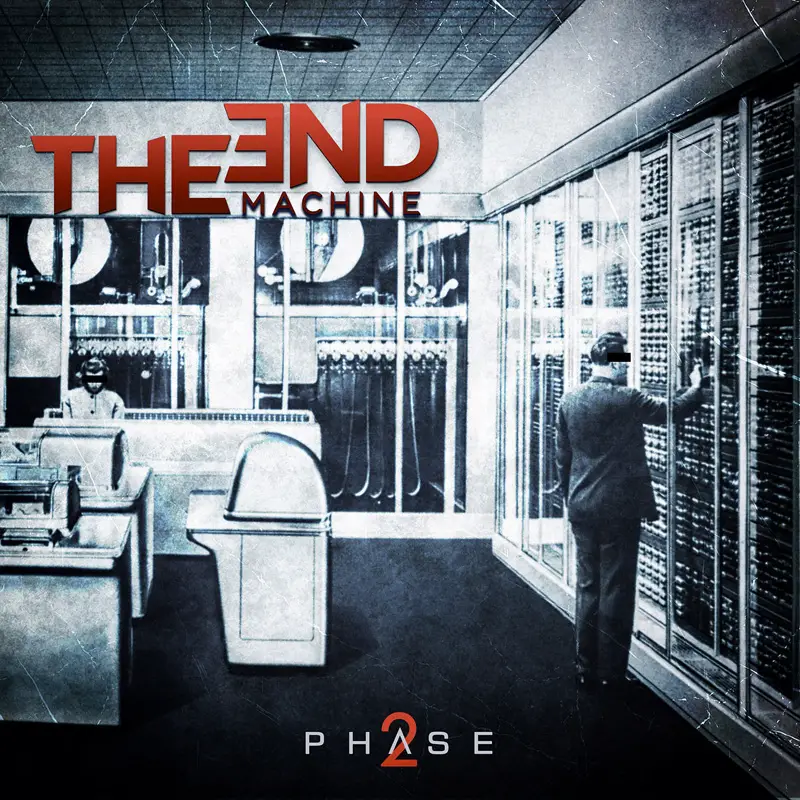
Andrew:
This album has some heavy-hitters that are sure to captivate a live audience. Is there a particular song on Phase 2 that you most look forward to playing in a live setting?
George:
I guess “Blood and Money” because it has a big-ass guitar solo. And I did relearn it because I had to play it when I shot the video, so I kind of know it now. That’s the problem with a lot of these records – you do so many records that you’re thinking, “Okay, 12 songs average a record. You do three records a year; that’s 36 songs plus some throwaways. So, you’ve got 40 tunes you’ve written, and then you’ve got solos in every one of those songs.” Add that to the pile, and it’s like, “Okay, well, the record came out, but we didn’t tour on it, so we didn’t rehearse. So, I had no reason to go back and learn the songs, and I’m already working on another record, so that past record is already out of my mind. I don’t even remember what I played.” My solos are usually not very premeditated; they’re pretty much off the cuff. It’s not like they’re prescribed parts; it’s just me kind of closing my eyes and playing over it. Then, somebody comes back to you a year later and goes, “Oh, okay. Well, how’d you play that?”
“Blood and Money” actually was an exception. We intentionally thought that one out, because most of my solos are just shooting from the hip, with the exception being Tooth and Nail. I thought, “Well, I should probably do more of that, because it ends up being pretty cool.” So, we did that with “Blood and Money.” I think, honestly, “Blood and Money” is a little over-indulgent and too long, but that’s just the way it ended up. We couldn’t really back out of it at that point. What’s nice about having a thought-out solo, is you can reproduce it. It’s very hard to reproduce solos that you’re just playing off the top of your head and jamming.
Andrew:
One of the more remarkable things about you, George, is that you’re an avid hiker, build guitars, write music, and have a number of album releases each year, while many of your contemporaries have a slow and steady approach these days. You’ve shown no signs of slowing down.
George:
I’m sure I eventually will, but I don’t know. I’ve definitely slowed down in the last couple of years. I used to be a much more hyper-intensive guy, and I don’t think that’s really healthy. But we were younger, we were all like that. I’ve learned to just work smarter, not harder; at least I’ve tried. So, I like to remain just as productive; I think I’m still just as productive as I was, if not more so, but less frantic about it. Before, if I couldn’t get something done within a timeframe, that day it had to happen, and I’d run around like a mad man. Now, it’s like, “You know what? Days come and go; this will still be here tomorrow; it will be here next week.” I’ve become less focused on making everything happen right this second. I think that’s probably a lot healthier place to be mentally. I wish I would have known some of these lessons when I was younger. As you’re starting out, and you’re trying to prove to the world that you have a legitimate excuse existing and prove that you matter, you’re driven by that.
Andrew:
Speaking of having that “prove to the world” mentality in the early days, you came out on fire with Tooth and Nail, which happened to follow the Ozzy audition. Did you feel you had something to prove at the time?
George:
Yeah, I mean, it really felt like I had something to prove, as did the rest of us for that whole ten-year period or more. Actually, going back to the early 70s, really, on a much smaller level, or even the late 60s when forming bands and garage bands and stuff. We were just trying to just prove on a local level that we mattered. You do Battle of the Bands, and you’re cutting heads with other guitar players; very competitive. We did that all through the 70s, and then we grew into The Boyz, Xciter, and then Dokken. It’s the same thing; incessantly pushing to get ourselves out there. Trying to find a crack in the wall somewhere.
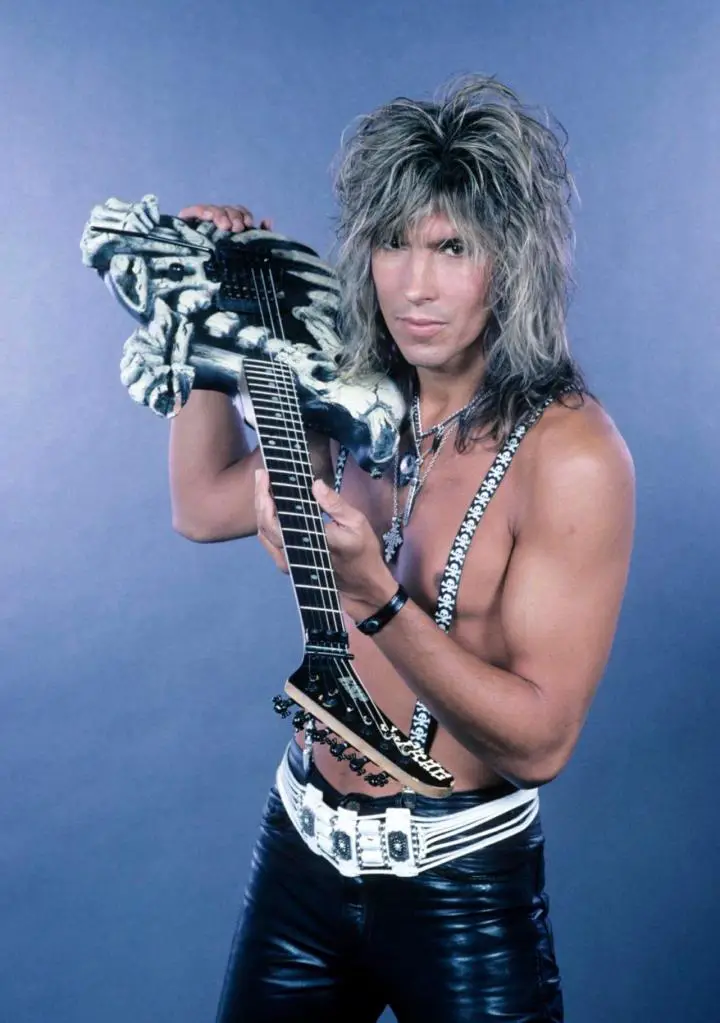
Andrew:
Back for the Attack sounded incredibly polished and seemed as though the band had just hit its stride, only to disband shortly after. What ultimately led to the demise of Dokken?
George:
Being on stage during that period was very disheartening because different elements of the band had calculated that it would be in their best interest to peel away from the group, fire the group, or do whatever they had to do legally to try to grab everything for themselves. It was just very demoralizing and depressing, so that was the end of that. That’s the way people are, and you live and learn. Sometimes, it’s two sides of the coin where some of the things that allow us to do what we do — invent great things and explore the outer limits of every facet of the universe. The flip side of that same coin is the thing that allows people to be driven to greed and the kind of things that get us into trouble and are on the dark side. So, I don’t think you can take one away without having the other, unfortunately. In every endeavor in life, you’re gonna run into this kind of thing; we’re not immune to it collectively or individually. We all have things in our personal makeup and our personal past that’s imperfect. Somebody in Dokken took a chance and tried to grab the whole brass ring, and we all ended up falling in the pool and drowning.
The flip side of that coin is we’re all really happy where we’re at. All of us in the band have gone on to do other things that we’re very proud of. We’ve all been afforded the luxury of doing something we love and getting compensated for it very well. I’m very appreciative of the lot I’ve been given, despite the obstacles, hardships, and some of the detours I’ve taken.
Andrew:
I understand you have an album in the works with [BulletBoys drummer] Jimmy D’Anda?
George:
Yeah, it’s called Seamless, and it’s an instrumental guitar record. It’s not a super, ultra shreddy thing because that’s not what I do – I mean, there is some stuff we did on there. It’s an interesting record. Jimmy and I wrote three or four of the songs together; I can’t remember exactly. It’s all guitar — I’ve never done that before, so it’s a first for me. It will be out this summer.
Andrew:
What’s next on your docket, George?
George:
We just finished up this record called The Banishment with the singer, Devix, and programmer engineer Joe Haze. The three of us have been working on this for a while. It’s sort of an industrial-esque kind of record, something that is very near and dear to me. It’s fucking dark, powerful, and multi-faceted. It’s really a dense, dense record that we’ve been working on for about seven years. That will be coming out hopefully later this year; we’re just putting the final vocal touches on it.
We started pre-production on KXM 4, I’m going to start working on a third Sweet and Lynch record this fall with Michael Sweet, and there’s an Ultraphonix record coming out with Corey Glover and myself. That was recorded a couple of years ago, live. It was just us in a studio — an old analog room in downtown L.A. for three days. It was really unorthodox, and we just kind of jammed and captured it. That will be coming out sometime this year as well.
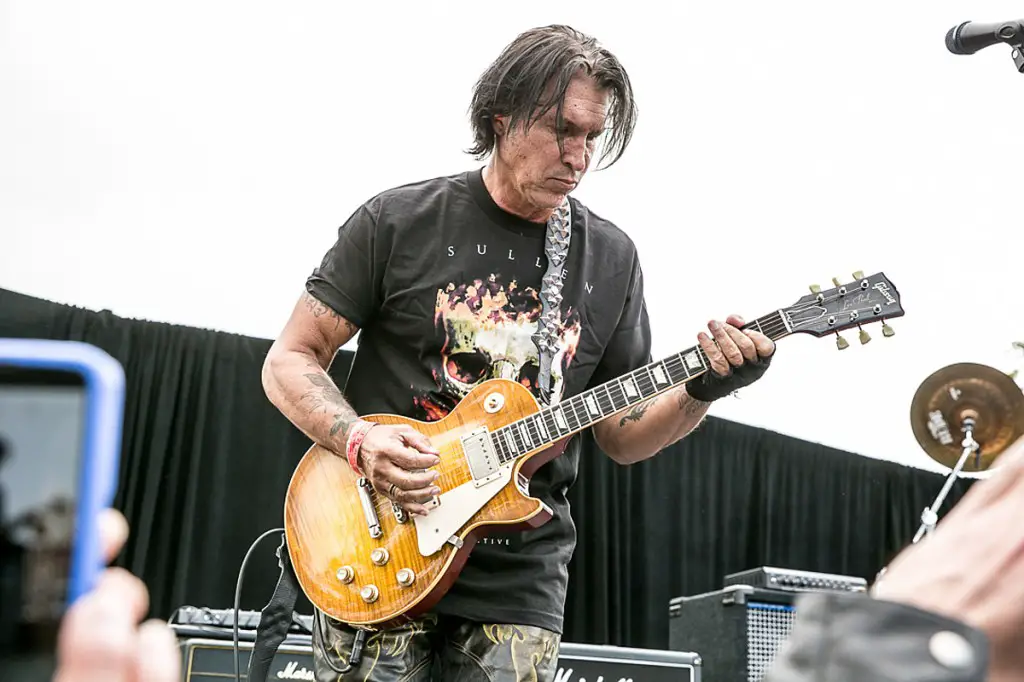
Interested in learning more about The End Machine? Check out the link below:
Dig this article? Check out the full archives of Shredful Compositions, by Andrew DiCecco, here: https://vinylwritermusic.wordpress.com/shredful-compositions-archives/
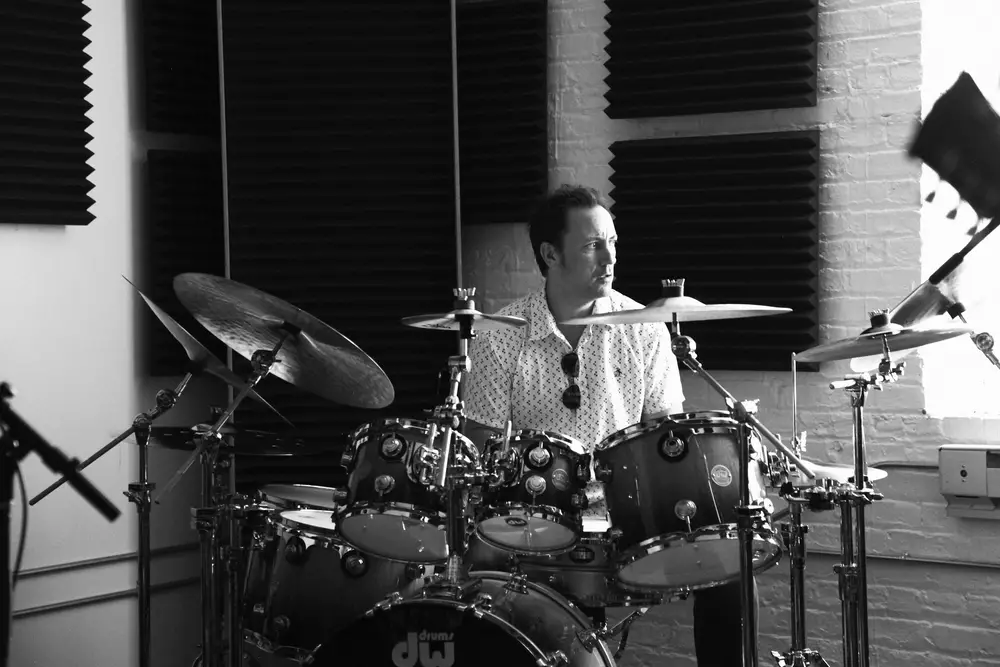




Leave a Reply